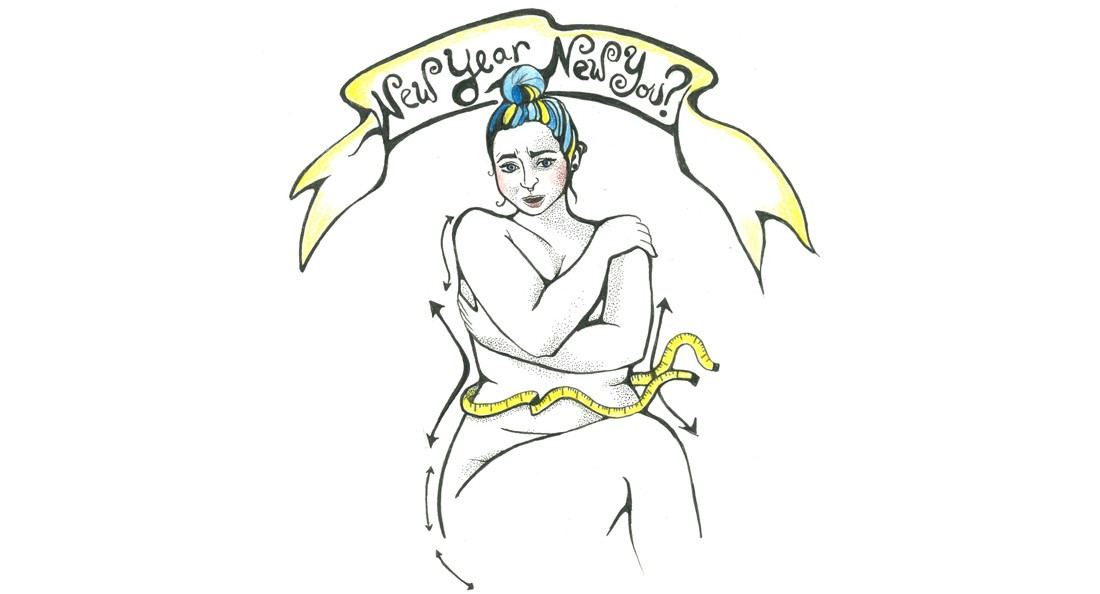This year, resolve not to diet
The rhetoric around weight loss is sizeist and based on false assumptions
The new year is a time when many people resolve to change their lifestyle for the better, often resulting in a pledge to lose weight. However, the correlation of weight loss with success is false and contributes to sizeist discrimination.
“We need a societal shift away from the idea that happiness and success can only be achieved at a certain weight,” Lindsey Mazur, registered dietitian with Manitobans Against Weight Stigma (MAWS), says.
“Regardless of BMI (body mass index), weight, size (and) shape, if we feel good about ourselves and our bodies, we are healthier than those who don’t, no matter what size they are,” Mazur says.
According to a 2009 study in the Obesity research journal, people who feel better about their bodies tend to be healthier than those who don’t. Ann McConkey, registered dietitian with the provincial Eating Disorder Prevention & Recovery Program, confirms these findings.
McConkey says people would do best to resolve to speak less about physical appearance rather than to resolve to lose weight.
“Weight discrimination is very common in the health care setting,” Mazur says. It “has … serious health impacts, (both) physical and mental.” For this reason, MAWS aims to pass the human rights Bill 200 making it “illegal to discriminate based on weight and size in Manitoba.”
The bill was recently rejected in 2017.
According to a Nutrition Journal article by Lucy Aphramor and Linda Bacon, weight is largely genetically determined. A bill against weight discrimination is important, since it shifts the blame off the individual, Mazur says.
“Our illusion that we have control is based on this short-term ability to change our weight temporarily,” McConkey says.
Mazur notes that many women count an instance of major weight loss as one of their biggest achievements. Ironically, diet culture is a large risk factor for developing an eating disorder, which is socially perceived as a failure.
Since every body has a natural weight, the best thing to do is to take care of it, McConkey says.
To get out of a weight-based mindset, Mazur suggests becoming conscious of negative thoughts regarding one’s own body. Another tactic is to regard the body in terms of its functions.
“For example, (say) things to yourself like ‘I like my body, because I have arms that I can hug my loved ones with,’ ‘I like my body because it gives me the ability to do the things that I enjoy,’” she says.
McConkey advises to change the question from “How can I lose weight?” to “How can I take care of myself?”
She emphasizes the importance of eating regularly and looking after your body.
“How can we take care of ourselves? How can we move our bodies in ways that are pleasant for us? … How can we eat in ways that give us the energy to do what we want to do with our lives?” she prompts.
Mazur explains that changing laws can help change perceptions and behaviours. She advocates for adding physical weight and size to the protected category of the human rights code.
“How can we celebrate success in ourselves and others, regardless of our size?” Mazur asks.
Manitobans Against Weight Stigma recognizes weight and size discrimination as a human rights issue and aims to end it.
Published in Volume 72, Number 14 of The Uniter (January 18, 2018)





